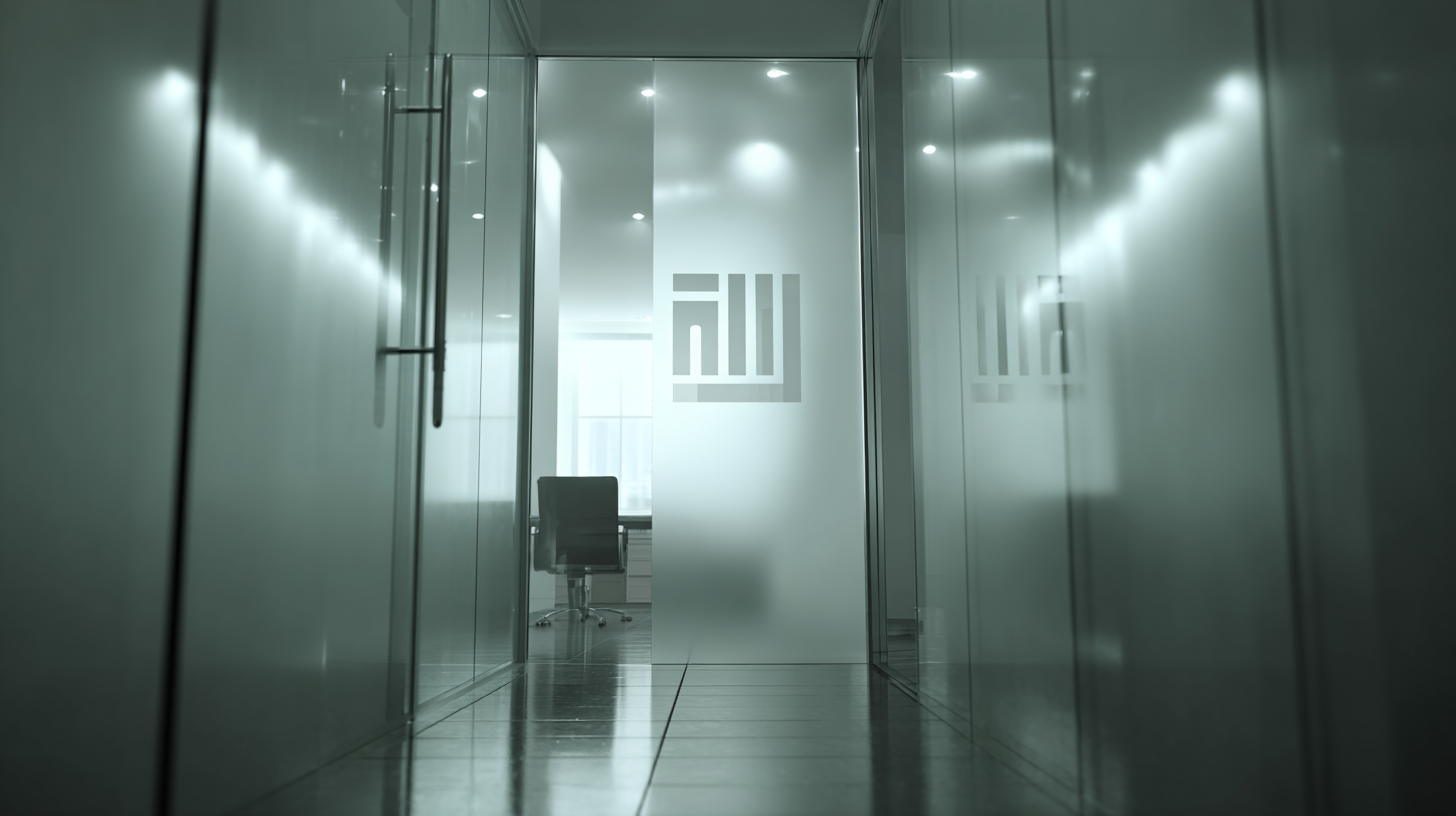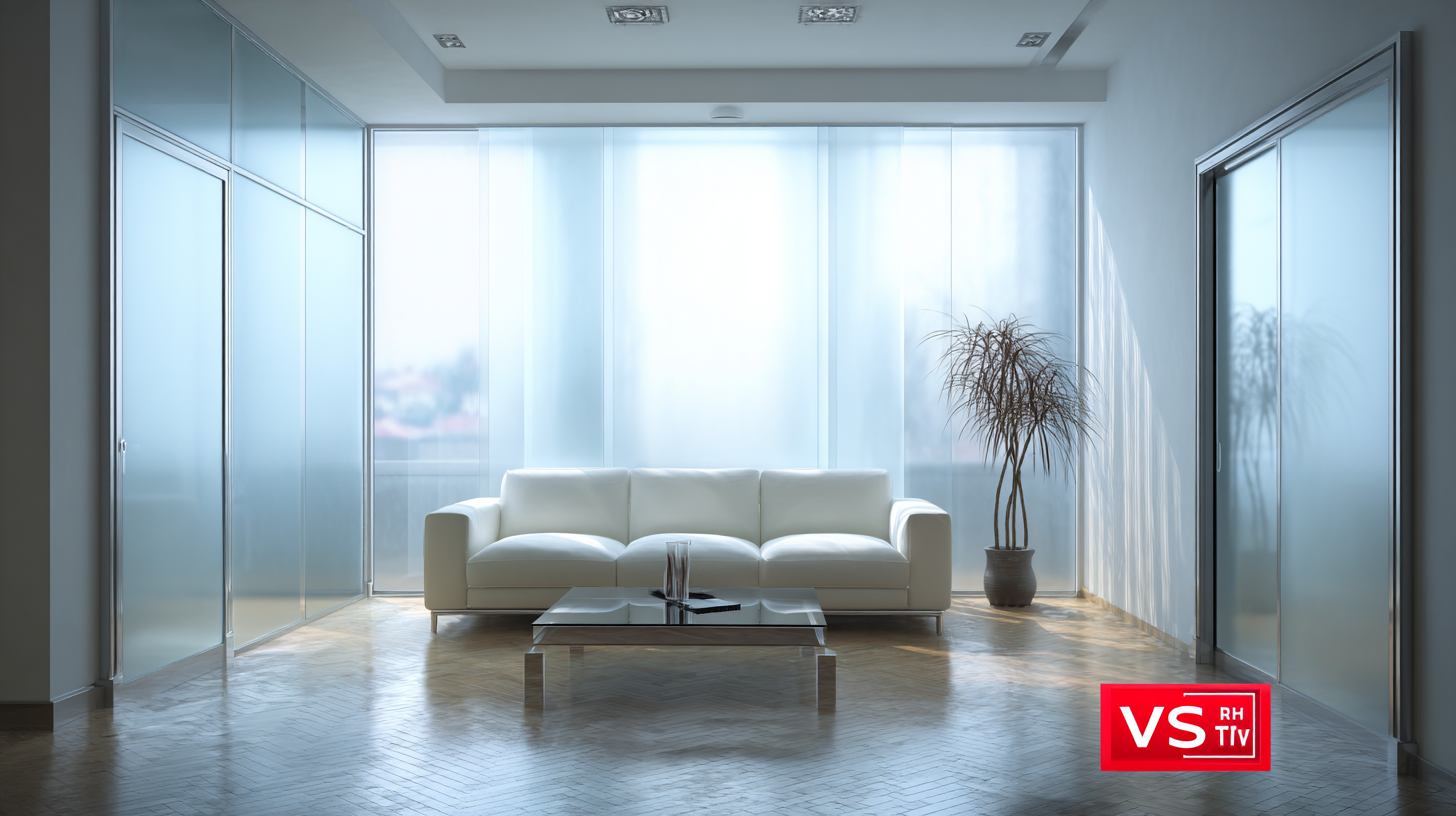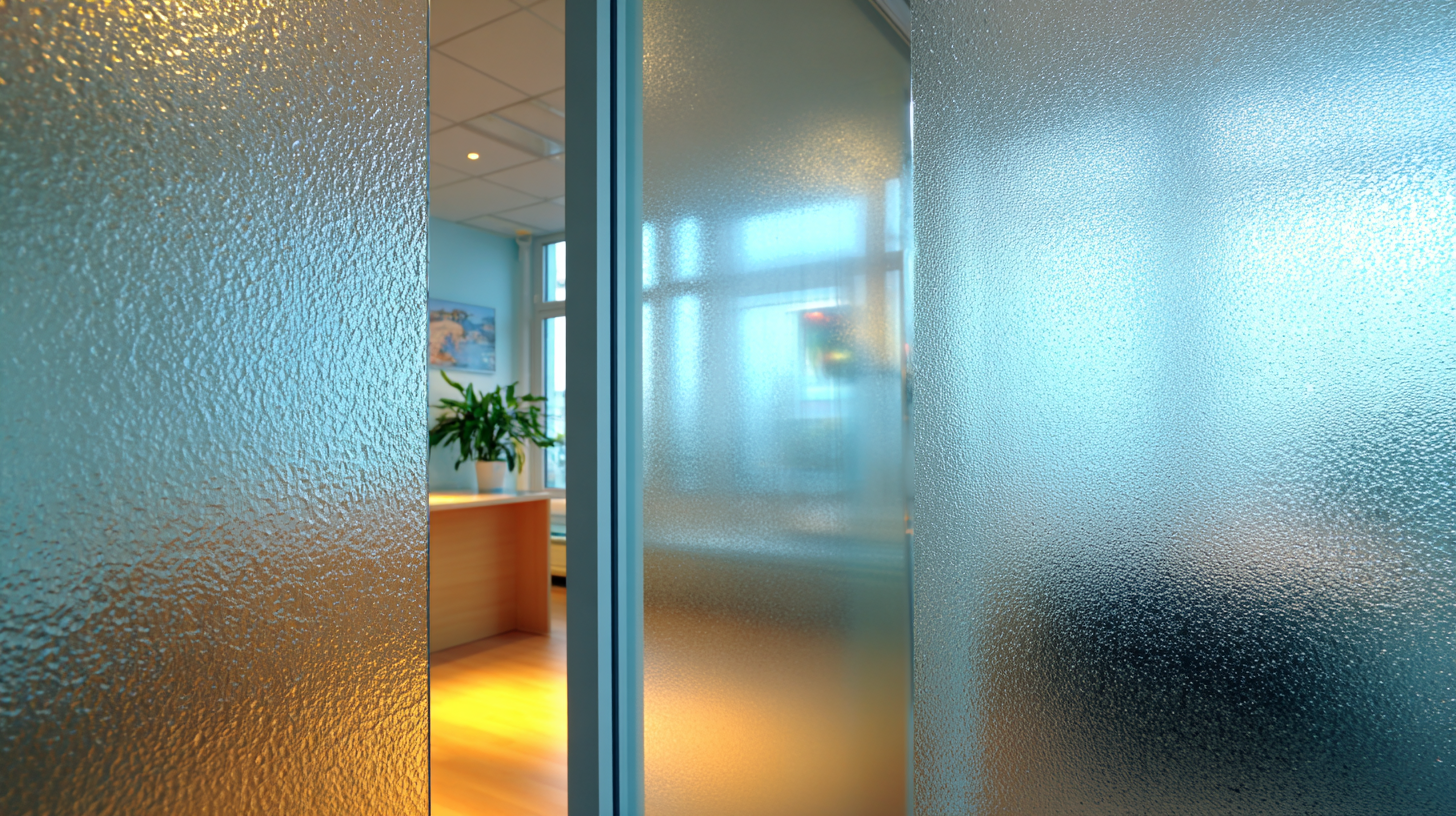
In modern interior design, the choice of materials plays a crucial role in achieving both functionality and aesthetic appeal. Among the various options available, frosted glass has emerged as a favored choice, renowned for its ability to balance light diffusion with privacy. According to a recent report from the Glass Association, the use of frosted glass in residential and commercial spaces has increased by over 30% in the past five years, reflecting a growing recognition of its versatility and style. The unique properties of frosted glass not only enhance the visual appeal of interiors but also contribute to energy efficiency and sustainability, making it an excellent choice for modern environments. As designers and homeowners alike seek to create spaces that are both beautiful and practical, it is essential to understand the advantages of integrating frosted glass into contemporary interiors and the potential problems that can arise from subpar options.

Frosted glass has become a popular choice in modern interiors, offering an elegant solution for enhancing privacy without sacrificing natural light. The unique texture of frosted glass diffuses light, creating a soft glow that fills a room while obscuring visibility. This makes it ideal for spaces such as bathrooms, offices, or open-concept living areas where maintaining a sense of openness and brightness is essential, yet privacy is a concern.

In addition to its aesthetic appeal, frosted glass serves functional purposes in modern design. It provides a barrier that reduces distractions in shared spaces, making it a practical choice for home offices or collaborative working environments. The ability to separate areas while maintaining an airy feel allows homeowners and designers to create distinct zones without resorting to solid walls.
Furthermore, frosted glass can be integrated into various applications, including shower doors, room dividers, and windows, enhancing both the beauty and functionality of modern interiors. This versatility combined with the benefits of light diffusion makes frosted glass an excellent choice for anyone looking to refine their living or working spaces.
Frosted glass has emerged as a popular design element in modern interiors, seamlessly blending functionality with aesthetic appeal. By diffusing light while maintaining privacy, frosted glass serves as an ideal choice for spaces like bathrooms, offices, and even kitchen partitions. Its subtle elegance enhances any room, contributing to a serene atmosphere while allowing natural light to flood the area.
When incorporating frosted glass, consider these tips: First, choose the right pattern or texture to complement your existing decor. Textured frosted glass can add depth and interest, making it a standout feature. Second, use frosted glass in unexpected ways, such as sliding doors or decorative room dividers, to create open yet defined spaces. Lastly, remember to think about lighting; backlighting frosted glass can create stunning visual effects, adding an extra layer of sophistication to your interiors.
With its versatile applications and visual appeal, frosted glass is a fantastic choice for those looking to enhance modern interiors. Each installation can serve as a unique expression of style while providing continued privacy, making it an essential element in contemporary design.
Frosted glass has become increasingly popular in modern interior design due to its unique balance of aesthetics and functionality. One of the key advantages of frosted glass is its remarkable durability. According to a report by the Glass Association of North America, tempered glass, which is often used for frosted products, can be up to five times stronger than regular glass, making it a resilient choice for various applications in home and office settings. This strength allows frosted glass to withstand daily wear and tear, ensuring longevity even in high-traffic areas.
In addition to its strength, frosted glass offers practical benefits such as easy maintenance and versatility. A study from the National Glass Association indicates that frosted glass surfaces are less prone to staining and scratching compared to traditional materials, making them easier to clean and maintain over time. Furthermore, the aesthetic flexibility of frosted glass allows it to seamlessly integrate into any modern design scheme, from partitions to shower doors, enhancing the visual appeal of spaces without compromising durability. With these attributes, frosted glass stands out as a long-lasting choice for contemporary interior design enthusiasts.
When it comes to modern interiors, frosted glass not only enhances aesthetic appeal but also brings significant eco-friendly benefits to households. Choosing frosted glass for windows, partitions, or decorative elements minimizes the need for artificial lighting during the day. Its ability to diffuse natural light can reduce energy consumption, providing a bright ambiance while keeping indoor spaces cozy and inviting. By maximizing the use of daylight, homeowners can enjoy a more sustainable environment without compromising on style.

Additionally, frosted glass is often made from recycled materials, thereby reducing landfill waste and the demand for new resources. This aligns with a growing trend towards environmentally responsible choices in home décor. The durability of frosted glass means it has a longer lifespan than many alternatives, which further diminishes the environmental impact. With its low maintenance needs and resistance to wear, choosing frosted glass can contribute to a greener home, appealing to those who prioritize sustainability in their design choices.
Frosted glass has emerged as a favored choice in modern interior design due to its unique blend of style and functionality. Its versatility allows it to seamlessly integrate into various spaces, from office partitions to residential bathroom doors. According to a recent report by Grand View Research, the global market for decorative glass, including frosted glass, is projected to grow by over 5% annually through 2027, highlighting its increasing popularity among homeowners and designers alike.
One of the major advantages of frosted glass is its ability to provide privacy while allowing natural light to filter through. This is particularly beneficial in shared spaces such as offices or therapy rooms, where a balance of openness and seclusion is essential. *Tip:* When selecting frosted glass for a particular application, consider the level of transparency you desire. Some frosted options provide complete opacity, while others maintain slight visibility, allowing for a customized approach based on your needs.
Additionally, frosted glass can contribute to energy efficiency by insulating spaces and reducing the need for artificial lighting during the day. This eco-friendly choice not only enhances aesthetic appeal but also supports sustainability efforts. *Tip:* To maximize its impact, think about incorporating smart lighting solutions that complement the natural light illuminated by frosted glass. This enhances the ambiance while also being mindful of energy consumption.
| Application | Advantages | Design Aesthetics | Functionality |
|---|---|---|---|
| Bathroom Partitions | Enhances privacy while allowing light. | Modern and sleek appearance. | Durable and easy to clean. |
| Office Partitions | Reduces noise and distraction. | Elegant touch to office interiors. | Allows natural light flow. |
| Shower Doors | Provides privacy while maintaining a spacious feel. | Stylish and contemporary look. | Water-resistant and long-lasting. |
| Windows | Diffuses harsh sunlight while providing privacy. | Adds aesthetic value to homes. | Energy-efficient options available. |